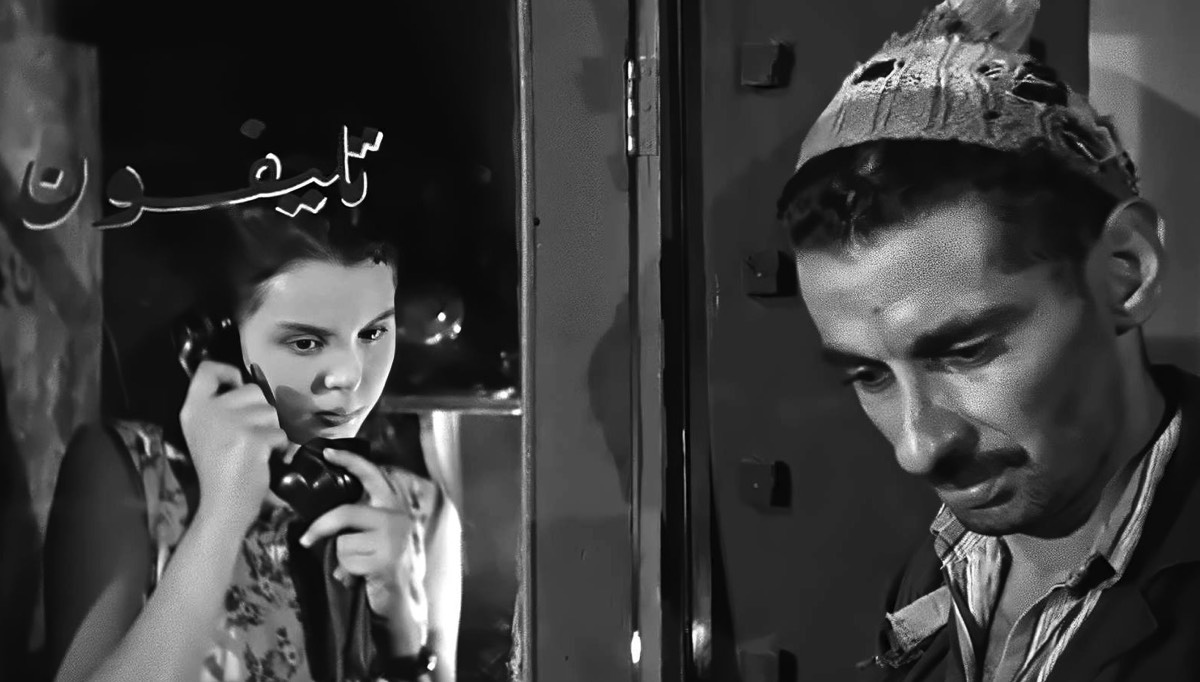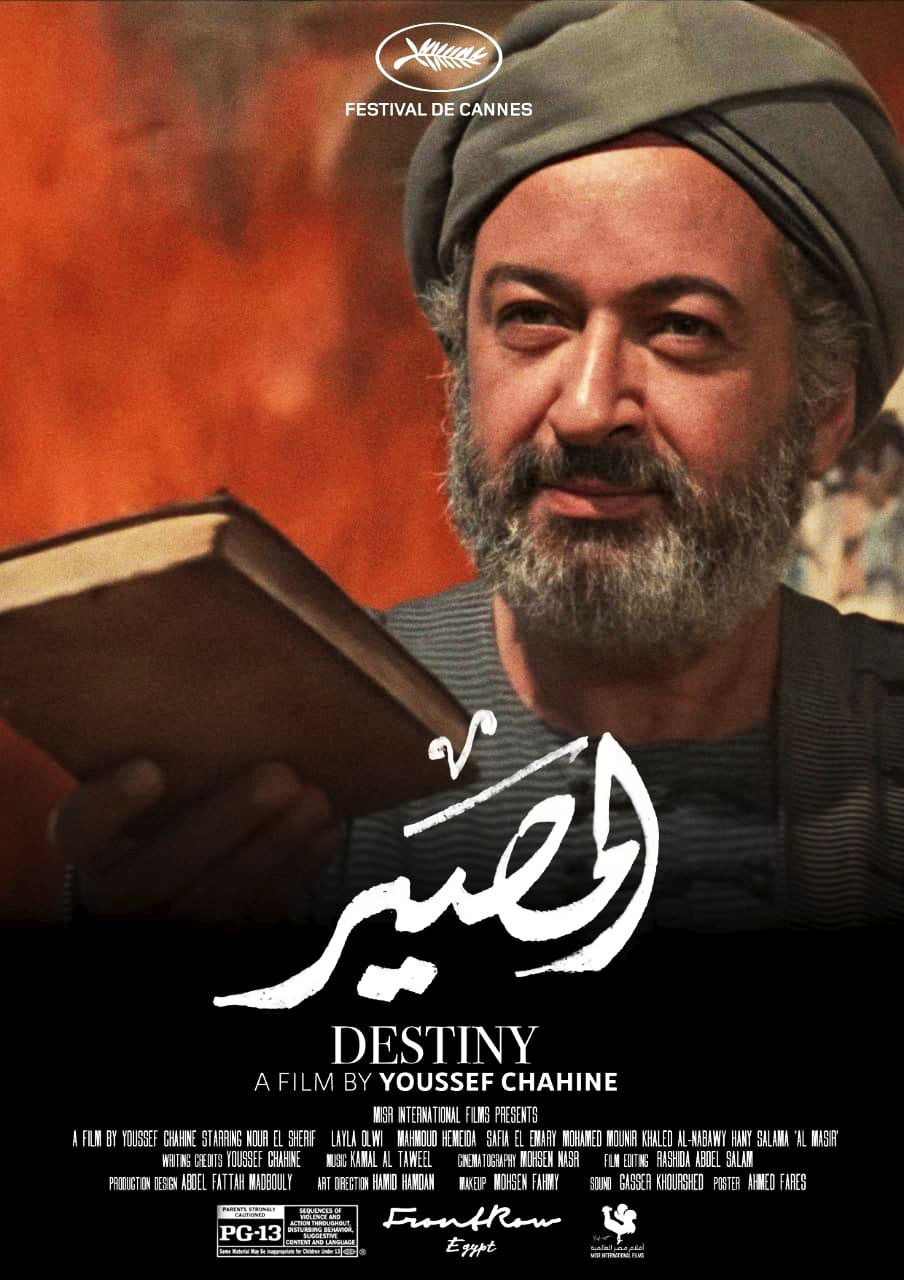"He is the best known and most highly regarded Egyptian filmmaker… From the start he asserted himself as a skilled technician. Although his early films only occasionally veered far from the thematic concerns of commercial cinema, they were frequently distinguished by the director's eclectic personality and bold visual style… After Egypt's stunning defeat by Israel in 1967, his films became increasingly political and social." - The Film Encyclopedia, 2012
Youssef Chahine
Director / Screenwriter / Producer / Actor
(1926-2008) Born January 25, Alexandria, Egypt
(1926-2008) Born January 25, Alexandria, Egypt
Key Production Countries: Egypt, France
Key Genres: Drama, Romance, Music, Musical, Crime, Biography, Comedy, History
Key Collaborators: Rashida Abdel Salam (Editor), Humbert Balsan (Producer), Gabriel Khoury (Producer), Marianne Khoury (Producer), Mohsen Nasr (Cinematographer), Mahmoud Al Meleji (Leading Character Actor), Seif Abdelrahman (Leading Character Actor), Hamed Hemdan (Production Designer), Farid Shawqi (Leading Actor), Mahmoud Hemida (Leading Actor), Ezzat El Alaili (Leading Actor), Khaled Youssef (Screenwriter)
Key Genres: Drama, Romance, Music, Musical, Crime, Biography, Comedy, History
Key Collaborators: Rashida Abdel Salam (Editor), Humbert Balsan (Producer), Gabriel Khoury (Producer), Marianne Khoury (Producer), Mohsen Nasr (Cinematographer), Mahmoud Al Meleji (Leading Character Actor), Seif Abdelrahman (Leading Character Actor), Hamed Hemdan (Production Designer), Farid Shawqi (Leading Actor), Mahmoud Hemida (Leading Actor), Ezzat El Alaili (Leading Actor), Khaled Youssef (Screenwriter)
"Preeminent Egyptian filmmaker whose output is in striking contrast to the light musicals which dominate his national industry. Chahine first gained a reputation for his incisive critiques of contemporary Arab society, such as Song of the Nile (1951) and The Blazing Sky (1952), but has subsequently shown a command of the medium which ranges across all genres. He is equally adept at dealing with the personal and lyrical (An Egyptian Story 1982) as with the overtly political (The Sparrow 1973)." - The Virgin International Encyclopedia of Film, 1992
"Chahine’s fervent iconoclasm earned him enmity from many sides: from government officials worried that he presented the region in a bad light, from fundamentalists railing against the sexual sophistication of his films and their constant attention to male and female beauty, and from ideologues of all stripes dissatisfied by the director’s inclusionary insistence on the value of the different and the diverse. Chahine’s brilliance at blending convention and innovation in his portraits of Egyptian life may unsettle those with fixed ideas about the Arab world—or about the distinction between popular and art film—but they continue to fascinate and delight anyone with an open mind and a true love of cinema." - Harvard Film Archive, 2009

Cairo Station (1958)
"Youssef Chahine is the undisputed father of Egyptian cinema. After studying at the University of Alexandria, he went to the United States, where he studied film and dramatic arts at California's Pasadena Playhouse… Chahine has a fascination with golden age Hollywood musicals: his characters often slide out of their narrative condition and into choreographed musical numbers. He is also obsessed with the cultural and political history of his country, especially Alexandria, which has led to some controversy." - Murray Pomerance (501 Movie Directors, 2007)
"One of the few Egyptian filmmakers to gain an international audience in his lifetime, Alexandria-born director Youssef Chahine enjoyed a long career stretching from the 1950s golden age, when the Egyptian national industry was one of the biggest in the world, right up into the new millennium. In Chahine’s era, Egyptian cinema had a reputation for being able to churn out ostentatious melodramas at an incredible pace, but his work stood apart for its artistic personality, empathy and willingness to tackle daring subject matter. His films were beloved in Egypt but also stoked controversy with their portrayals of sexuality, capitalism, gender, corruption and religious extremism. His filmography comprises roughly 40 features, covering a wide range of tones, subjects and genres, but often united by the sensitive approach in which Chahine shows both the societal and personal complexities at play." - Leila Latif (BFI, 2021)
"Chahine is a key figure in Third World cinema. Unlike some of the other major filmmakers who also emerged in the 1950s—such as Satyajit Ray or Lester James Peries—he has not turned his back on commercial cinema… Chahine’s strength as a filmmaker lies indeed in his ability to combine mainstream production techniques with a very individual style and approach. Though intensely patriotic, he has shown a readiness to criticize government policies with which he does not agree, such as those of the late President Sadat." - Roy Armes (International Dictionary of Films and Filmmakers, 2000)
"I make films first for myself, then for my family, then for Alexandria, then for Egypt... If the Arab world likes them, ahlan wa sahlan (welcome). If the foreign audience likes them, they are doubly welcome." - Youssef Chahine
Selected Filmography
{{row.titlelong}}
GF Greatest Films ranking (★ Top 1000 ● Top 2500)
21C 21st Century ranking (☆ Top 1000)
R Jonathan Rosenbaum
21C 21st Century ranking (☆ Top 1000)
R Jonathan Rosenbaum
Youssef Chahine / Fan Club
Aki Kaurismäki, Joseph Fahim, Richard Brody, Hind Mezaina, Jonathan Rosenbaum, Al Ahram.
Aki Kaurismäki, Joseph Fahim, Richard Brody, Hind Mezaina, Jonathan Rosenbaum, Al Ahram.
"Fan Club"
These film critics/filmmakers have, on multiple occasions, selected this director’s work within film ballots/lists that they have submitted.
These film critics/filmmakers have, on multiple occasions, selected this director’s work within film ballots/lists that they have submitted.


